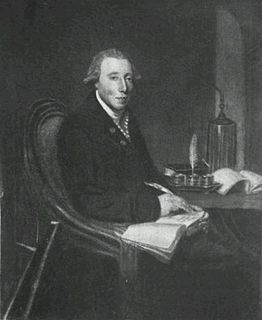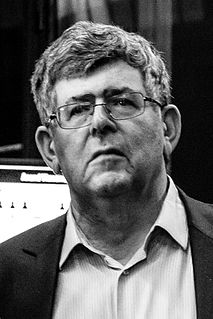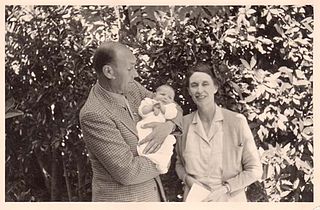A Quote by Robert Aris Willmott
One interesting feature of criticism is seen in the ease with which it discovers what Addison called the specific quality of an author. In Livy, it will be the manner of telling the story; in Sallust, personal identification with the character; in Tacitus, the analysis of the deed into its motive. If the same test be applied to painters, it will find the prominent faculty of Correggio to be manifested in harmony of effect; of Poussin, in the sentiment of his landscapes; and of Raffaelle, in the general comprehension of his subject.
Related Quotes
It is the interest of every man to live as much at his ease as he can; and if his emoluments are to be precisely the same, whether he does or does not perform some very laborious duty, it is certainly his interest, at least as interest is vulgarly understood, either to neglect it altogether, or, if he is subject to some authority which will not suffer him to do this, to perform it in as careless and slovenly a manner as that authority will permit.
Many painters had a clear idea of what fractals are. Take a French classic painter named Poussin. Now, he painted beautiful landscapes, completely artificial ones, imaginary landscapes. And how did he choose them? Well, he had the balance of trees, of lawns, of houses in the distance. He had a balance of small objects, big objects, big trees in front and his balance of objects at every scale is what gives to Poussin a special feeling.
Accordingly, we find Euler and D'Alembert devoting their talent and their patience to the establishment of the laws of rotation of the solid bodies. Lagrange has incorporated his own analysis of the problem with his general treatment of mechanics, and since his time M. Poinsôt has brought the subject under the power of a more searching analysis than that of the calculus, in which ideas take the place of symbols, and intelligent propositions supersede equations.
The therapist can interpret, advise, provide the emotional acceptance and support that nurtures personal growth, and above all, he can listen. I do not mean that he can simply hear the other, but that he will listen actively and purposefully, responding with the instrument of his trade, that is, with the personal vulnerability of his own trembling self. This listening is that which will facilitate the patient's telling of his tale, the telling that can set him free. (5)
The art of reasoning becomes of first importance. In this line antiquity has left us the finest models for imitation; I should consider the speeches of Livy, Sallust, and Tacitus, as pre-eminent specimens of logic, taste, and that sententious brevity which, using not a word to spare, leaves not a moment for inattention to the hearer. Amplification is the vice of modern oratory.
I don't think an actor needs to necessarily go through his things to do his job. I think it's way more important to imagine. And then, when you're imagining, your experiences, your images and your own personal things will show up, but you keep imagining. You don't get stuck in your own personal things, otherwise you are telling your story in every character, and that's not interesting for anybody.
I focus on faculty, as opposed to facilities, budgets, endowments or students. I do so because I believe, based on many decades of work as a teacher, a scholar and an administrator, that the quality of the faculty determines the quality of the university. Everything else flows from the quality of the faculty. If the faculty are good, you will attract good students and you will have alumni who will raise funds for you.
The individual man, in introspecting the fact of his own consciousness, also discovers the primordial natural fact of his freedom: his freedom to choose, his freedom to use or not use his reason about any given subject. In short, the natural fact of his "free will." He also discovers the natural fact of his mind's command over his body and its actions: that is, of his natural ownership over his self.
The great characteristic of men of active genius is a sublime self-confidence, springing not from self-conceit, but from an intense identification of the man with his object, which lifts him altogether above the fear of danger and death, which gives to his enterprise a character of insanity to the common eye, and which communicates an almost superhuman audacity to his will.
I talk to groups studying the most advanced spiritual teachings and sometimes these people wonder why nothing is happening in their lives. Their motive is the attainment of inner peace for themselves - which of course is a selfish motive. You will not find it with this motive. The motive, if you are to find inner peace, must be an outgoing motive. Service, of course, service. Giving, not getting. Your motive must be good if your work is to have good effect. The secret of life is being of service.
Geological facts being of an historical nature, all attempts to deduce a complete knowledge of them merely from their still, subsisting consequences, to the exclusion of unexceptionable testimony, must be deemed as absurd as that of deducing the history of ancient Rome solely from the medals or other monuments of antiquity it still exhibits, or the scattered ruins of its empire, to the exclusion of a Livy, a Sallust, or a Tacitus.
Often you will find the opposite situation. The author seems to have interesting ideas, but he is not able to illustrate them with decent examples. If a grandmaster is commenting on one of his own games, then there is usually not any problem: his general thoughts are closely tied up with what is happening on the board. But as soon as he starts writing an article or book on a different theme the difficulties begin, as he may not have suitable material to hand.
I've never heard of any one single artist being the subject in an ongoing series of radio programs for decades. Bearing this in mind, that's the kind of thing Frank Sinatra brings out in his audience, his followers. It's personally satisfying to me because his music by and large was the greatest quality of lyrics, melody, orchestration and, of course, his magnificent approach to telling a story.


































